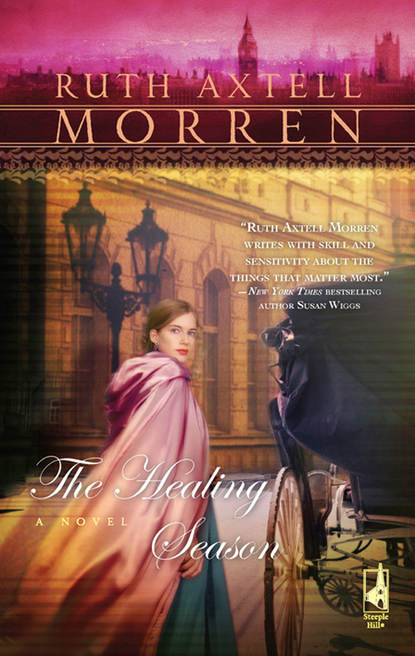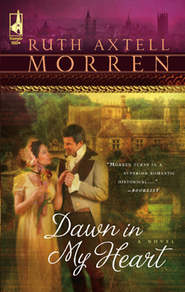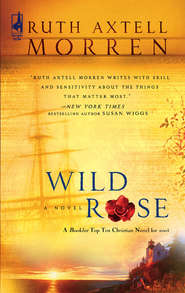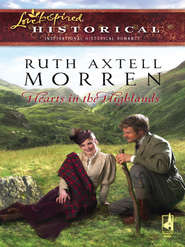По всем вопросам обращайтесь на: info@litportal.ru
(©) 2003-2024.
✖
The Healing Season
Настройки чтения
Размер шрифта
Высота строк
Поля
“We stretch the narrow definition of the burletta—the only dramatic form we’re licensed to perform—until we are doing the same sorts of performances you would see at the royal theaters, only we mustn’t let on to the fact.”
He returned her smile. “I suppose the parallel is a just one. I never would have seen the connection.”
She stirred her tea. “You could also say we both deal with healing. You take care of the physical injuries. I attempt to bring respite to people through a few hours of laughter.”
His smile disappeared, leaving an uncomfortable silence. Had her second comparison displeased him?
“You’ve ruined your outfit,” he said softly.
She followed his gaze down to her gown. He was right. The front was hopelessly soiled with blood and dirt.
“It’s the second time you’ve ruined a gown when you’ve been in my company.”
“So it is,” she said, realizing it was the second time she’d assisted him in doctoring. What a strange turn of events. “You must ruin a good many shirts and neck cloths.”
“That’s why I don’t dress in the finest.”
She studied the cut of his coat. “No…I can see that. What a pity. You are not a bad-looking man, but as they say, clothes make the man.”
She caught that slight flush on his cheeks again. “Have I put you to the blush?” she asked, feeling inexplicably pleased. “Forgive me if I’ve been indelicate. We’re very frank about our looks in the theater. It is part of our livelihood.
“My physician is always tailored by Weston,” she continued. “He’s particularly proud of the knot of his cravat. Dr. Elliot, do you know him?”
“I know of him,” he answered. “He has quite a reputation.”
She could read nothing from his tone, and was left wondering how to interpret his remark.
“Thankfully, I’m usually as healthy as a horse, but Dr. Elliot does give me drafts for my throat to keep my voice at its best.”
Mr. Russell felt in his waistcoat pocket, then frowned.
“What is it?”
“I keep looking for my watch, before remembering I have no watch. It was stolen from me last week.”
“How dreadful. The streets are being overrun by cut-purses these days.” Quickly she drew out her own watch and snapped it open. “It’s just past four.”
“I need to be getting back to the dispensary. May I escort you to your carriage?”
She nodded and began to collect her things.
When she dropped him off at the dispensary, he turned to her. “I wish to thank you for your able assistance this afternoon. I did need your help.”
She lowered her lashes. “It is I who must thank you for your protection and for making me eat when I felt faint.”
“Think nothing of it.”
She felt a sense of regret when he stepped down from the chaise. After so many hours in his company, in danger and working side by side with him, she felt a bond with the dedicated young surgeon who smiled all too infrequently.
“Well, I must be off.” He stepped away from the carriage and lifted his hat.
As her carriage drove away, she glanced back. Mr. Russell stood watching her. She raised her hand in a wave, but he didn’t return the wave. Instead, he wheeled about and entered the dispensary.
Chapter Five
Ian dipped his pen into the inkstand.
Under the heading Respiratory Disorders, he wrote “Consumption and Phthisis.” Beside it he jotted the number three, the total number of cases he had seen that day. Next he wrote “Pleurisy and Pleuritic fever.” One case. “Catarrh.” Two cases.
Thankfully, the weather was still warm, so the dispensary hadn’t yet seen many respiratory cases. That would soon change as late summer gave way to autumn.
The next category was gastrointestinal. Several cases of colic, diarrhea, and worms among the infants and children. Two deaths. The columns grew. Ian pushed away from the desk in frustration. Too many children were dying.
His uncle had taught him the importance of meticulous record keeping. Although many times the number of fatalities was discouraging, Ian knew in the long run the only way to convince officials of the need for decent living conditions was to show them hard numbers.
At least more and more parents were bringing in their sick children. When he’d first opened the dispensary, the only children he’d seen were the ones on his visits to people’s homes. The people were used to hospitals and physicians refusing to treat children, claiming they were too hard to diagnose. He had found the opposite true. By paying close attention, he had found that many times their symptoms were actually more evident than in their adult counterparts.
He continued to record the day’s cases. Surgical treatments included ten broken bones set; eleven bruises; two head injuries; five tumors, of which three were untreatable, the other two possibly operable; six toothaches, with two ending in extraction; four leg ulcers; two abscesses.
He had scheduled one amputation tomorrow. A man had smashed his hand in a doorway, and now gangrene had set in and the arm begun to turn black. Even though amputation was always used as a last resort, in this case there was no help for it, if the patient’s life was to be spared.
He finished recording the day’s patient histories, scattered some pounce over the writing and dusted it off. He eased the kinks in his shoulders as he placed the pen back in the standish.
Taking a few moments to massage the back of his neck, he found his thoughts straying once again to Mrs. Neville.
Over the past few days since meeting her, her pretty face kept floating into his thoughts at odd moments of the day. No, not pretty, he corrected himself. Beautiful. She was the most exquisitely formed creature he’d ever beheld. Each time she looked at him, he was startled afresh by her silvery eyes, her delicate features, her golden hair.
Her figure was slim and dainty. Everything was pleasing to the eye. Even when tired and disheveled after assisting him, she still managed to look fresh and appealing.
He rubbed a hand over his jaw, knowing he had to get his thoughts under control. It did no good daydreaming about an actress. She might look pure and innocent, but he knew how deceptive the image was. Actresses were little better than prostitutes he reminded himself for the countless time.
But try as he might, he couldn’t seem to block her image from his mind.
Thankfully, he hadn’t run into her since the street riot, although he’d been to check on Miss Simms a few times. He’d had to stifle the sense of disappointment, for he knew she visited because Miss Simms waxed eloquent over how kind and generous “Eleanor” had been to her, coming to see her each day. It seemed most of her visits were reserved for late evening after a show or early afternoon before she went to the theater.
“Halloa!” a voice called from the doorway.
Ian looked up to see his friend’s tall frame leaning against the doorway.
“You looked so deep in thought I was afraid to disturb you, lest you be on the verge of discovering a new surgical technique that might aid all of humanity.”
Ian made an effort to chuckle. “Nothing of the kind. I’ve just finished up with the records for today. Come in, Henry, don’t stand there.”
Lord Cumberland eased away from the doorpost and maneuvered himself over to a chair in the cramped room that passed for an office. He sank down with a contented sigh as if the few moments standing had tired him out.
“Too many hours spent doing nothing?” Ian teased, eyeing Henry’s evening clothes. He was about Ian’s age with short-cropped hair cut in the latest fashion.
Henry grinned back shamelessly. “Doing nothing is an art form. Didn’t Byron say that? If he didn’t, he ought to have.”











